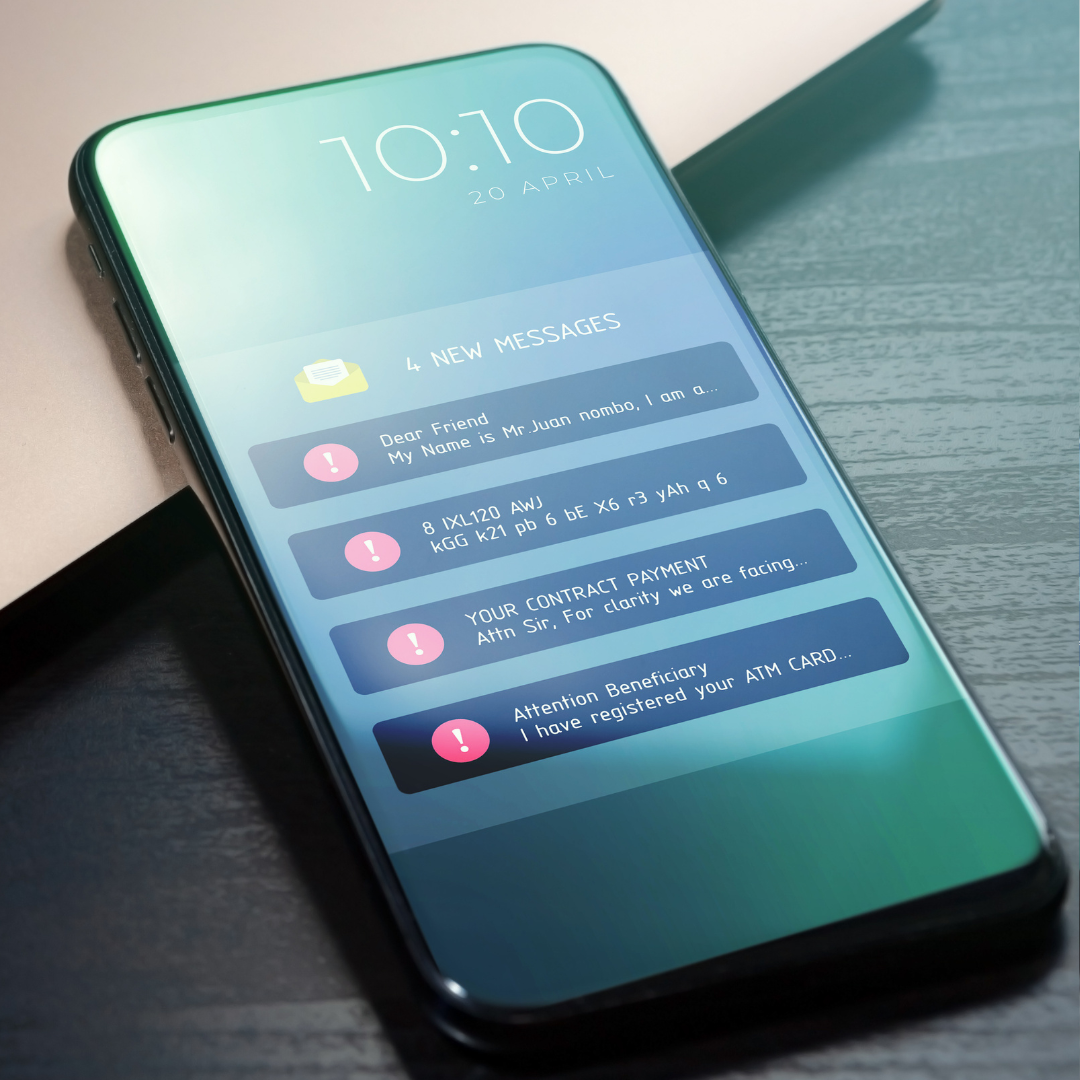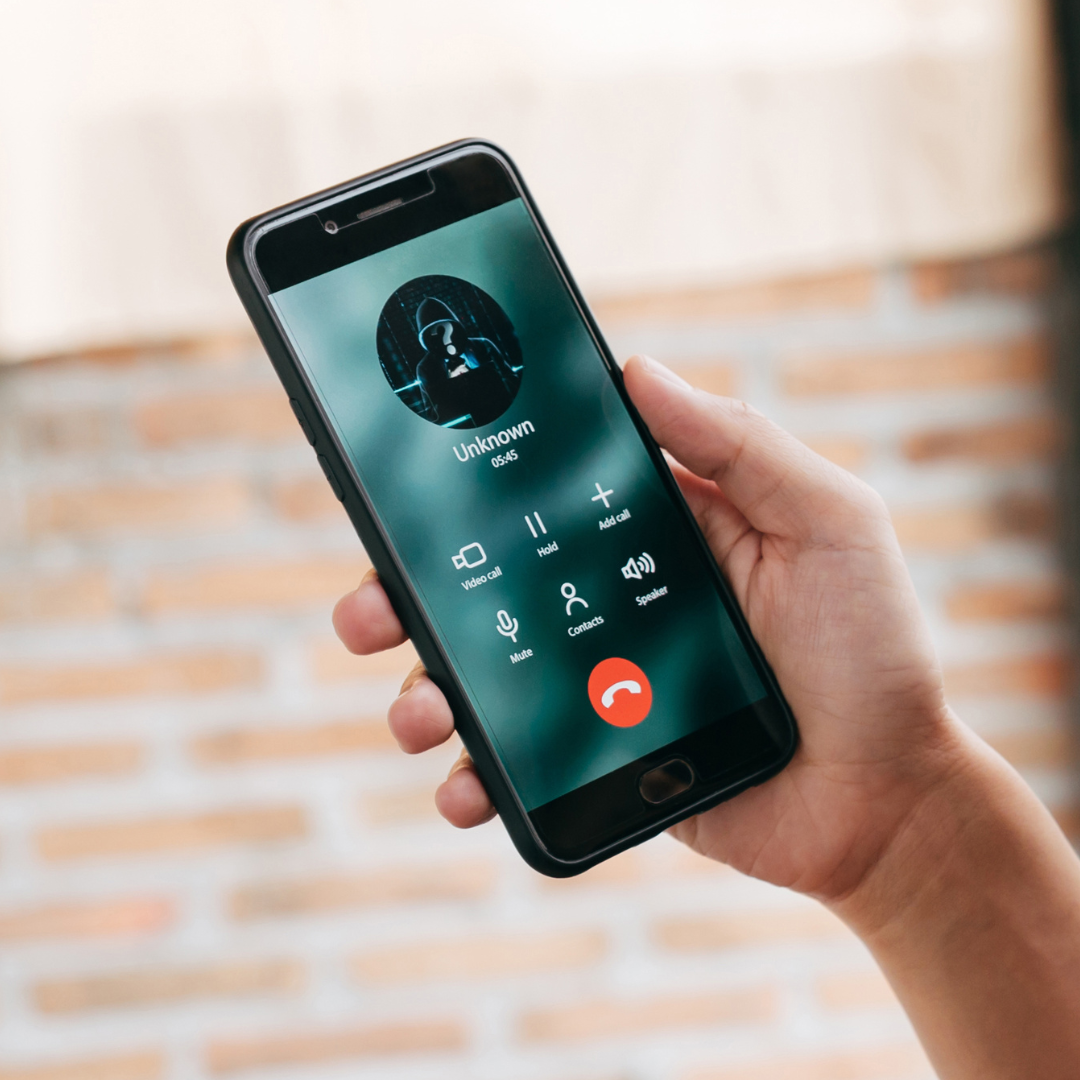But the scariest thing about October? Potential scams.
Thankfully, Clear Mountain Bank is here to keep you safe and help you know what to look out for.
October is National Cybersecurity Awareness Month. Check out these tips and tricks from the American Bankers Association's "Banks Never Ask That" campaign.

Trick #1: Scams Through Emails
1. Unusual Email Address
Before you rush to respond to an email, make sure you really look at who is sending it in the first place. Does it look like an address your bank would use? Make sure you are wary of unexpected emails from addresses that aren’t like the ones your bank usually uses when sending messages to customers like you.
2. Misspelled Words
Wait. This email contains misspelled words? And odd grammar mistakes? This might be a clear sign that someone is impersonating your bank. Real banks that contact their customers will ensure they spell-check all emails before sending them.
3. Scare Tactics
Don’t panic right away if an email that looks like it's from your bank gives you an urgent warning of account closure or security breaches. In most cases, scammers will try to scare customers into giving them information or money by making them think that they have done something wrong or that the bank is taking excessive measures.
4. Suspicious URLs
A weird link popped up in an email asking you to verify your bank account. Please don’t open it. Your bank will NEVER ask you to log in via email. Phishing scams use deceptive URLs to take you to malicious software. Never click links you weren't expecting in the first place.
5. Unexpected Attachments
If “your bank” sends you an email with an attachment, especially when you didn’t ask for it, the sender isn’t really your bank. Email attachments contain malware that can compromise your computer or personal information. Never click on attachments from emails supposedly from your bank.

Trick #2: Text Scams
1. Strange Phone Numbers
Is the number that is messaging you one that you have seen before? If not, don’t answer. Legit text messages that come from your bank will come from an official 4–5-digit number used by your bank.
2. Urgent Warnings or Requests
Don’t worry, take a breath and think first. Phishing texts will try to create a sense of panic, such as posing as your bank and threatening to suspend your account or urging you to log in to verify. Real banks will do nothing of the sort.
3. Odd Grammar or Spelling Mistakes
Did you happen to see a weird message from your bank with grammar and spelling errors? Don’t worry. This means that the message isn’t really from your bank. Like in email, your bank will ensure that it spellchecks everything before it is sent.
4. Request for Personal Information
If you receive a text asking for your personal or sensitive information, you can automatically assume it is a scam. Your bank will NEVER ask for information such as PINs, passwords, or Social Security numbers via text message.
5. Suspicious Links
Your bank will very rarely, if ever, send you a link through a text message. If you receive one that looks like it could be from your bank, don’t click it. Instead, verify this message by visiting your bank’s official website or calling the number on the back of your card.

Trick #3: Phone Scams
1. Unusual Caller ID
While caller ID can be spoofed, legitimate calls from your bank are more likely to display an official phone number or a known identifier. If not, be very cautious and don’t give the caller any information that they could use against you.
2. Scare Tactics or Threats
Calls that pose as your bank will typically use a sense of urgency to get you to give them your information as quickly as possible, without you thinking it through. If the caller is pressuring you into immediate action or threatens negative consequences, hang up and call your local branch immediately.
3. Asking for Personal Information
Clear Mountain Bank will never ask for your account number, PIN, or password during a phone call—and will NEVER ask for a one-time login code. Never share such confidential details.
4. Calling you Unexpectedly
You should be very skeptical of phone calls you receive out of the blue. In most cases, your bank will only reach out by phone if you initiated the contact. Make sure you stay safe by ending the call and calling your local branch immediately.

Trick #4: Payment App Scams
1. Unexpected Requests
Be cautious if you receive an unexpected request from strangers or organizations asking you to send money through a payment app. This is something your bank would never do, and it's a clear sign that a scammer is trying to steal your information.
2. Sending Money to Yourself
If someone who claims to be your bank says you have to send money to yourself, it isn’t your bank. Scammers commonly pose as your bank and use tactics like this to try to get your money quickly and easily.
3. Overpayment Claims
Be extremely careful if a sender claims to have overpaid you through Zelle and asks for a refund of the excess amount. Scammers will use this tactic to trick you into sending them money.
4. Suspicious Links
If you get a payment app-related message that includes a link, never click it. Scammers often send links to fake login pages to steal your username and password.
5. Pressure and Urgency
Scammers will always attempt to trick you by creating a sense of urgency. If they happen to mention unforeseen emergencies, unverified transactions, account suspensions, or unsolicited prize winnings, it’s not actually your bank.
The biggest treat this Halloween season is learning from these cybersecurity tips and not falling for the tricks that the cyber ghost might try to use against you. All the information provided in this blog can be found by visiting www.banksneveraskthat.com. To learn some additional skills or play games that test your cybersecurity knowledge and stay up to date with the latest cyber updates, visit the site above. To learn more about cybersecurity in banking, or if you are worried you are being scammed, please visit clearmountain.bank or call your nearest branch today.
About Clear Mountain Bank
Clear Mountain Bank is an award-winning community bank that has been serving North Central West Virginia and western Maryland for more than 130 years. The bank has received numerous readers’ choice accolades, including Best of Morgantown, Best of Harrison, and Preston County’s Top Picks. With a focus on innovation and exceptional customer service, the bank offers a full range of financial solutions and is widely recognized for excellence in financial services and community involvement. Additional information is available at www.clearmountain.bank.
←→







